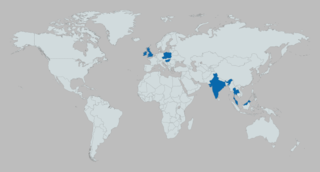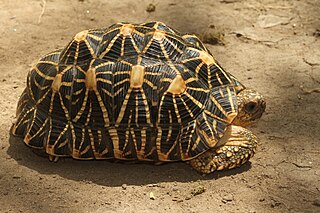This article has multiple issues. Please help improve it or discuss these issues on the talk page . (Learn how and when to remove these template messages) (Learn how and when to remove this template message)
|
 | |
| Motto | Dedicated to the Conservation and Protection of Tortoises |
|---|---|
| Founded | January 2007 in United Kingdom |
| Type | Non-profit |
| Focus | Environmentalism |
| Location | |
| Method | Lobbying, research, consultancy |
| Website | www |
The Tortoise Protection Group (TPG) is a British non-profit organisation founded in January 2007 with the aim of stopping the importation of tortoises into the UK for the commercial pet trade, and to promote high standards of husbandry in tortoise keeping. The mission of the Tortoise Protection Group is to help ensure the survival of tortoises in the wild and to promote high standards of husbandry for tortoise keepers in the UK. Over the last year,[ when? ] it has been working closely with members of Parliament and various charities to bring about a change in legislation, with a petition enlisting thousands of signatures.

The United Kingdom of Great Britain and Northern Ireland, commonly known as the United Kingdom (UK) or Britain, is a sovereign country located off the north-western coast of the European mainland. The United Kingdom includes the island of Great Britain, the north-eastern part of the island of Ireland, and many smaller islands. Northern Ireland is the only part of the United Kingdom that shares a land border with another sovereign state, the Republic of Ireland. Apart from this land border, the United Kingdom is surrounded by the Atlantic Ocean, with the North Sea to the east, the English Channel to the south and the Celtic Sea to the south-west, giving it the 12th-longest coastline in the world. The Irish Sea separates Great Britain and Ireland. The United Kingdom's 242,500 square kilometres (93,600 sq mi) were home to an estimated 66.0 million inhabitants in 2017.
A nonprofit organization, also known as a non-business entity, not-for-profit organization, or nonprofit institution, is dedicated to furthering a particular social cause or advocating for a shared point of view. In economic terms, it is an organization that uses its surplus of the revenues to further achieve its ultimate objective, rather than distributing its income to the organization's shareholders, leaders, or members. Nonprofits are tax exempt or charitable, meaning they do not pay income tax on the money that they receive for their organization. They can operate in religious, scientific, research, or educational settings.
Contents
It aims to increase public awareness of the conditions under which tortoises are brought into the UK for the pet trade. Various strategies are utilised, including petitioning the government for a ban on the importation of tortoises bound for the UK commercial market. In addition, the TPG provides information and guidance on the best methods of tortoise husbandry for many species of tortoises and provides detailed care sheets on the website for many different species of tortoises.
The Tortoise Protection Group aims to inform the general public of the licensing requirements to help stop the illegal trade continuing and reduce the taking of tortoises from their natural environment. It aims to encourage DEFRA to work more closely with the wholesalers and retailers and the general public to tighten up the licensing regulations and to ensure that those that continue to illegally trade in tortoises are prosecuted. [1]

The Department for Environment, Food and Rural Affairs (Defra) is the government department responsible for environmental protection, food production and standards, agriculture, fisheries and rural communities in the United Kingdom of Great Britain and Northern Ireland. Concordats set out agreed frameworks for co operation, between it and the Scottish Government, Welsh Government and Northern Ireland Executive, which have devolved responsibilities for these matters in their respective nations.





















